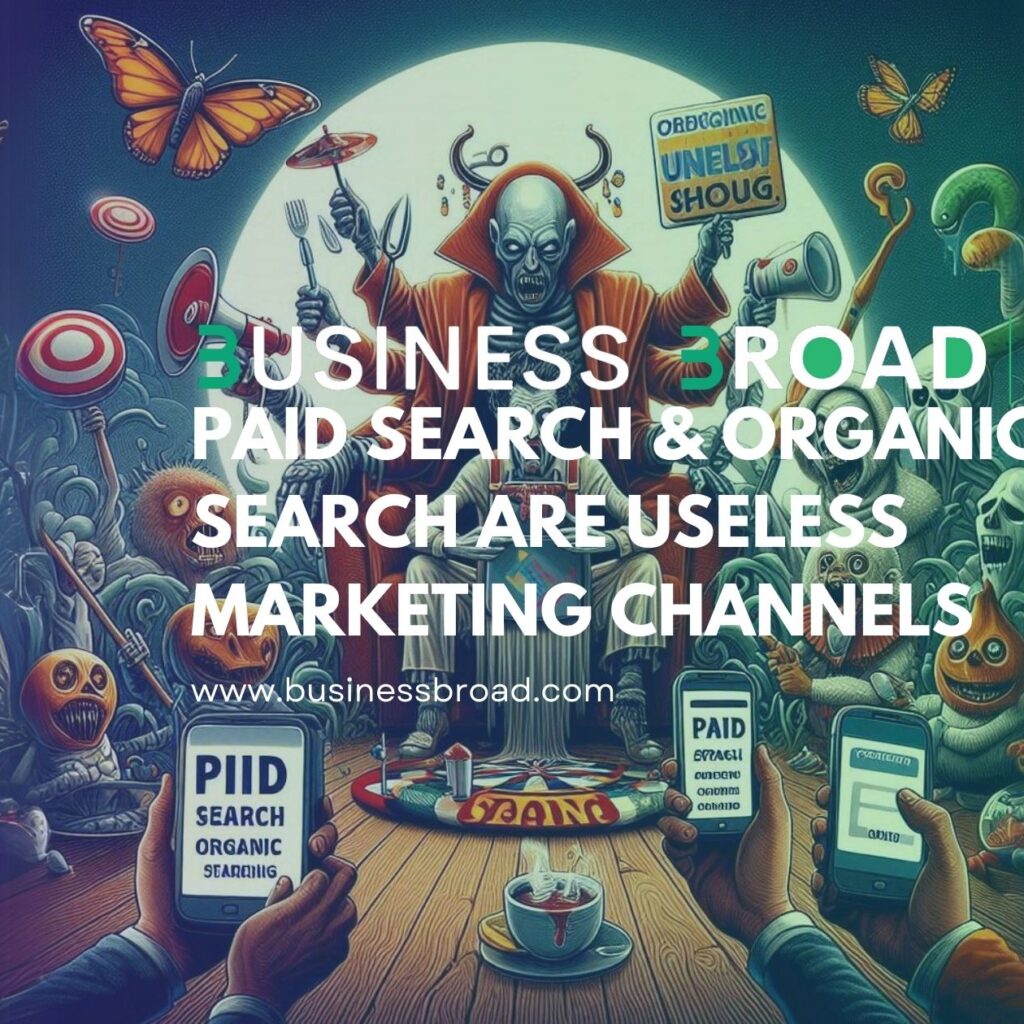In the ever-evolving landscape of digital marketing, “Paid Search” and “Organic Search” have long been heralded as essential tools for driving traffic and generating leads. However, a growing number of marketers are beginning to question their effectiveness. Are these channels truly indispensable, or are they becoming obsolete in the face of new marketing strategies?

The Case Against Paid Search
Paid search, often referred to as Pay-Per-Click (PPC), involves advertisers paying a fee each time their ad is clicked. While this method can yield immediate results, it comes with several drawbacks:
- High Costs: The cost of PPC campaigns can quickly escalate, especially in competitive industries. Small businesses may find it challenging to compete with larger companies that have substantial advertising budgets.
- Temporary Results: The moment you stop paying for ads, your visibility plummets. This lack of sustainability makes it difficult to achieve long-term growth.
- Ad Fatigue: Users are becoming increasingly adept at ignoring ads, leading to lower click-through rates and diminishing returns on investment.
The Case Against Organic Search
Organic search, or Search Engine Optimization (SEO), aims to improve a website’s visibility in search engine results pages (SERPs) without paying for placement. Despite its popularity, SEO has its own set of challenges:
- Time-Consuming: Achieving high rankings in organic search results can take months or even years. This slow process can be frustrating for businesses looking for quick wins.
- Algorithm Changes: Search engines frequently update their algorithms, which can drastically affect your rankings. Keeping up with these changes requires constant effort and adaptation.
- Uncertain ROI: Unlike paid search, where you can directly measure the cost per click, the return on investment for SEO is harder to quantify. This uncertainty can make it difficult to justify the resources allocated to SEO efforts.
Alternative Marketing Channels
Given the limitations of paid and organic search, marketers are exploring alternative channels that offer more sustainable and cost-effective results:
- Content Marketing: Creating valuable, relevant content can attract and engage your target audience, building trust and loyalty over time. This approach not only drives traffic but also enhances brand authority.
- Social Media Marketing: Platforms like Facebook, Instagram, and LinkedIn offer powerful tools for reaching and engaging with your audience. Social media marketing allows for more personalized interactions and can drive significant traffic to your website.
- Email Marketing: Despite being one of the oldest digital marketing channels, email marketing remains highly effective. Personalized email campaigns can nurture leads and convert them into customers with a high return on investment.
- Influencer Marketing: Partnering with influencers can help you reach new audiences and build credibility. Influencers have established trust with their followers, making their endorsements highly valuable.
Conclusion
While “Paid Search” and “Organic Search” have their merits, they are not without their flaws. As the digital marketing landscape continues to evolve, it is essential for businesses to diversify their strategies and explore alternative channels. By doing so, they can achieve more sustainable growth and better adapt to the ever-changing market dynamics.




